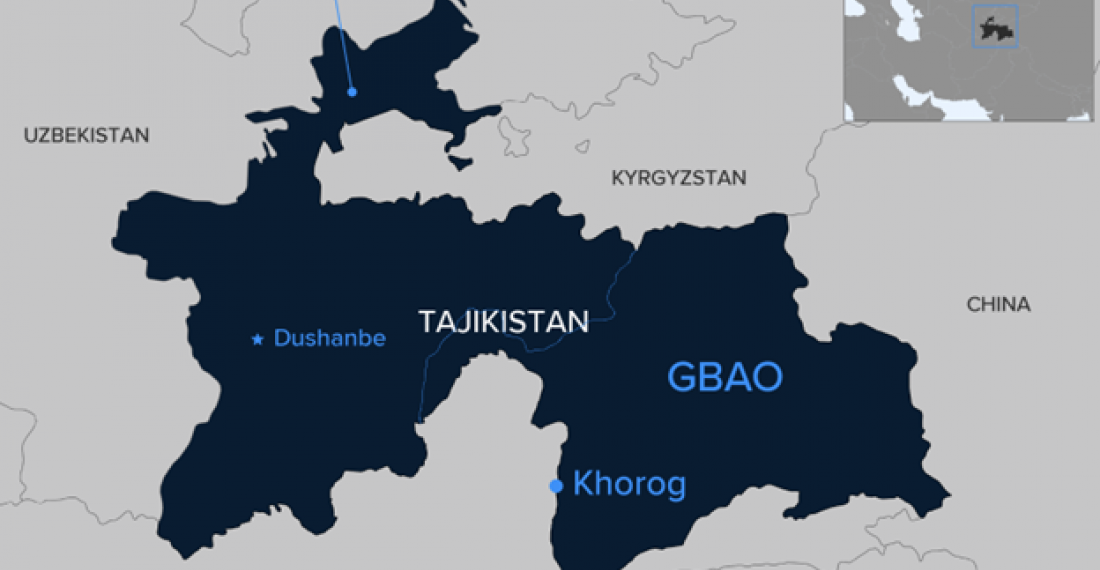Violent clashes have returned to the Gorno-Badakhshan Autonomous Province (GBAO) in Tajikistan over the past few weeks. Protestors who gathered on 14-16 May in Khorog calling for the dismissal of the governor of the GBAO and greater autonomy were met with a firm response by the Tajik authorities. On May 22, the leader of the Pamiri region, Mamadbokir Mamadbokirov, was killed in a government operation, according to residents.
Residents in Khorog, the capital of the GBAO, gathered to call for the release of prisoners held after protests in November 2021, more autonomy from Dushanbe, and the removal of the Tajik appointed governor. In response, the Tajik government announced, on 18 May, that it was to begin an “anti-terror operation” to quell the uprising and end the blockade of the highway linking Khorog to Dushanbe, the capital of Tajikistan. Throughout these protests, 25 persons are reported to have been killed and hundreds detained. Reports are hard to come by as the Tajikistan government imposed an internet blackout in the region. Nevertheless, through direct conversations with residents, news emerged that the leader of the Pamiri region, Mamadbokriov, who is said to have led the blockade of the key highway and the protests, was killed on May 22. On its part the government said that he was killed by his men in an internal conflict. Supporters of Mamadbokirov say he was killed by sniper fire.
There have been frequent clashes between the Pamiris and the central government, and their roots can be traced back to the Tajik Civil War (1992-1997) when the government of Tajikistan fought with the United Tajik Opposition (UTO), a large group that the Pamiris supported. While a weak central government was able to, over time, consolidate power and exert control over the UTO, which had been given 30% of all places in government, the GBAO, a sparsely populated and mountainous region, remained outside the influence of Dushanbe. The Tajik authorities were relegated to making deals with local leaders in an attempt to exert influence. GBAO received very little investment and remained poor.
Since 2008, there have been repeated Tajik security operations in the GBAO following a number of uprisings led by Mamadbokoriv. While a fragile peace was reached after 2012, now the security forces are increasingly viewed with extreme suspicion and can spark another period of unrest at any time. The latest violence in November 2021, caused due to protests after a 29-year-old male was killed by Tajik authorities, led to multiple other deaths and the detention of hundreds more. While the lack of internet in the region clouds reporting, reports suggest it is unlikely that the dispute between the central government and the GBAO will come to a peaceful ending soon. As RF/RFE Central Asia Journalist Bruce Pannier lamented that “perhaps the most tragic part of the recent violence in GBAO is knowing it will be repeated.”







